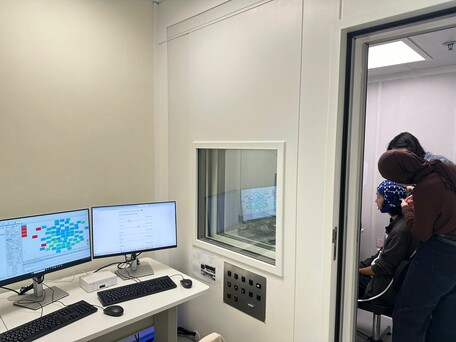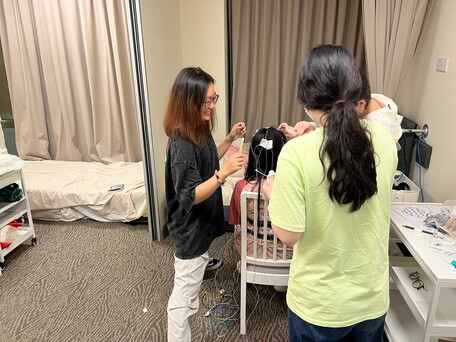Why Lose Sleep for Work if Sleep Works for You? Neurocognitive Affective Benefits of Home-based Sleep Extension in Chronically Sleep-restricted Emerging Adults
Funding Scheme
General Research Fund (RGC)
Funding Amount
HK$1,000,000
Awarded Year
2023
Better sleep for young adults means more effective functioning
This research project investigates the long-term effects of sleep extension on neurocognitive and affective functions in chronically sleep-restricted emerging adults. By implementing a personalized two-week home-based sleep extension program, which incorporates evidence-based motivational interviewing and habit-change strategies, we aim to improve sleep quality and duration. Our multi-method approach incorporates ecological momentary assessment (EMA) and electroencephalography (EEG) to comprehensively evaluate the impact of sleep gain on cognitive and emotional outcomes, providing valuable insights for both scientific understanding and practical applications in sleep health.
Sustainable Development Goals
In 2015, UN member states agreed to 17 global Sustainable Development Goals (SDGs) to end poverty, protect the planet and ensure prosperity for all. The research team contributes towards the following SDG(s):
This research primarily addresses the sleep issues faced by chronically short sleepers among young adults with the aim of implementing sleep health education and sleep extension strategies informed by behaviour change theories. These strategies facilitate the effective implementation of sleep interventions, helping to overcome common obstacles and improve both sleep duration and quality. In tackling these challenges, we seek to mitigate the negative impacts of inadequate sleep on cognitive and emotional functioning, to ultimately enhance the overall wellbeing of this vulnerable population.
The significance of this research lies in its goal to deepen our understanding of the long-term effects of sleep extension on cognitive and emotional functioning in chronically short sleepers. By integrating personalized interventions with behaviour change strategies, the study aims to provide practical solutions for improving sleep quality and duration among emerging adults. The findings could inform clinical practices and public health initiatives, promoting better sleep health and overall well-being. Furthermore, the use of innovative assessment methods such as ecological momentary assessment (EMA) and electroencephalography (EEG) will enhance our insights into the multifaceted impacts of sleep on daily functioning.
The beneficiaries of this research extend across diverse groups, primarily targeting chronically short sleepers among emerging adults. Healthcare practitioners, mental health professionals, and sleep specialists will benefit from the evidence-based strategies developed to improve sleep health. Additionally, public health policymakers can use the insights gained from this study to design targeted interventions for broader populations at risk of sleep-related issues. Ultimately, this research aims to enhance overall well-being, positively impacting various sectors concerned with mental health, productivity, and quality of life.
Selected Publications
|







